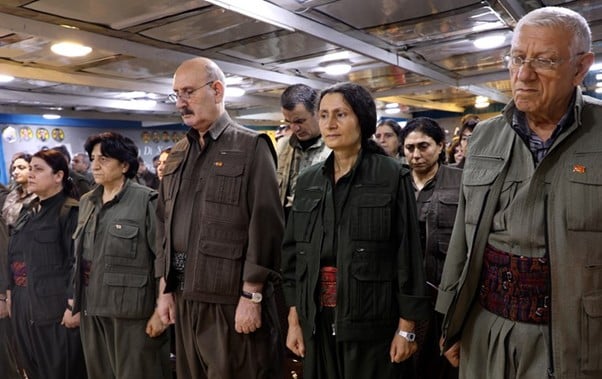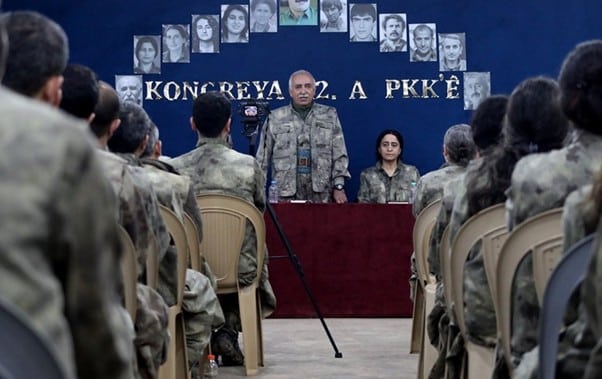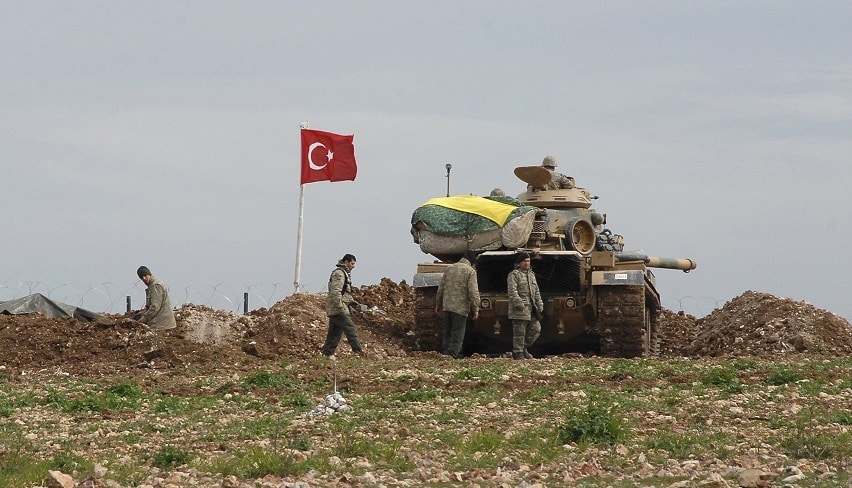On 12 May, the PKK announced its formal dissolution and an end to the armed struggle against Turkey. The announcement formally marks the end of an insurgency lasting more than four decades and in its statement the PKK echoed co-founder Abdullah Ocalan’s call in February for the group to dissolve and pursue Kurdish rights within the democratic and political process. The announcement was met with positive reactions and was widely hailed as a landmark, historic decision that will enhance regional stability. The Turkish government also hailed the announcement as positive but cautioned that the decision must apply to all PKK affiliates.
The conditions underpinning the peace initiative remain unclear and have not been made public, but Turkish officials have stressed that no concessions have been made to the group. Despite this, multiple sources have discussed a range of possible conditions and concessions that may have facilitated the PKK’s decision, including an amnesty for PKK members and the release of other, high-profile PKK elements currently held in Turkish prisons. This remains to be confirmed and the implementation of the dissolution will be monitored closely over the coming weeks as key issues related to disarmament and relocation of PKK elements remain to be resolved.
PKK announced end to armed struggle
On 12 May, the PKK Extraordinary Congress announced the formal dissolution of the Kurdistan Workers Party (PKK) and the end of all armed operations conducted under its name. The decision concluded a process initiated by co-founder and leader Abdullah Ocalan’s 27 February 2025 statement, and was finalized during an internal party congress held between 5 and 7 May.
In the statement released on 12 May, the group echoed Ocalan’s message on 27 February and said the armed struggle had successfully stood up for Kurdish rights and “brought the Kurdish issue to the point of resolution through democratic politics, thus completing its historical mission.” “As a result, activities carried out under the name ‘PKK’ were formally terminated,” the statement said. To recall, Ocalan’s message in February urged the group to lay down its arms and called on its members to pursue Kurdish rights within a democratic, political process instead of armed resistance. On 1 March, the group responded by declaring a unilateral ceasefire and plans to hold an internal congress to proceed with the dissolution.
The domestic and regional reactions to the announcement were positive. In response, the Turkish government praised the announcement and Foreign Minister Hakan Fidan described the decision as “historic”. At the same time, the foreign minister said the government would closely monitor what steps the group takes. A spokesperson for President Erdogan wrote on social media platform X that the announcement marks a significant step towards the goal of a “terror-free Turkey.” At the same time, Turkish officials struck a tone of caution by emphasizing that the decision must apply to all PKK-affiliates without exception.
In the KR-I, KRG President Nechirvan Barzani issued a statement welcoming the PKK’s decision to disarm and disband. He described the move as a positive and necessary step for all relevant parties that would lay the foundation for permanent and comprehensive peace. He also affirmed the Kurdistan Region’s readiness to offer full support to realize this historic opportunity. Similarly, KDP leader and former president Masoud Barzani also commended the PKK’s decision to dissolve and disarm on Monday as “positive steps toward a peaceful solution” while reiterating full support for the peace process. The PUK likewise welcomed the announcement with leader Bafel Talabani praising the move as a “historical milestone.”
Terms and implications of peace initiative still unclear
The terms, conditions and discussions underpinning the piece initiative remain somewhat unclear as officials on both sides have revealed little in public. To recall, the peace initiative was first launched in October by Devlet Bahceli – a member of the Turkish far-right Nationalist Movement Party and a coalition partner to President Erdogan. At the time, Bahceli discussed the idea of granting Ocalan a conditional release in exchange for the PKK’s dissolution but Turkish government officials have repeatedly insisted that no concessions would be made to the group and that the government demands the PKK’s “unconditional surrender.”
Despite this, multiple sources have discussed a range of possible conditions and concessions that may have facilitated the PKK’s decision, including an amnesty for PKK members and the release of other, high-profile PKK elements currently held in Turkish prisons. Other demands likely focus on ways to enhance Kurdish rights in Turkey, including constitutional amendments to expand Kurdish-language education and easing the crackdown on the DEM Party and other Kurdish constituencies. As of writing, no such concessions have been granted and no significant pieces of legislation, amendments or other measures have been announced by the Turkish government that would explain the PKK’s decision to abide by Ocalan’s call. This is a potential issue as Kurdish leaders and PKK-affiliated elements have recently criticized the Turkish government for not doing enough to facilitate the peace initiative. A continued failure in this regard may set conditions for a resumption in hostilities and set back the process.
Other key issues are assessed to remain and may likewise prove challenging over the short-to-medium term. This includes the process of disarming and relocating active PKK elements in northern Iraq, and the dismantling of PKK bases, logistical hubs and other sites in the KR-I. Some sources have speculatively suggested that PKK members recently engaged in armed operations will be offered amnesty and a supervised relocation within Iraq, or to a third country in Europe; however this remains unconfirmed. Besides logistical challenges, this is also politically sensitive as any concessions or amnesties granted to the PKK would likely face political backlash in Turkey. The associated dynamics and implementation of the dissolution will therefore be important to monitor.
The immediate operational implications of the announcement on 12 May also remain to be seen but it understandably sets conditions for a pause in Turkish military operations and an end to the more than four-decades-long insurgency. That said, Talos monitored additional Turkish airstrikes on 12 May in the Duhok province after the PKK announcement and it should be noted that the unilateral ceasefire on 1 March did not prevent Turkish forces from continuing airstrikes and ground operations in the north. So far, the Turkish government has also not announced an end to the military operation in northern Iraq.
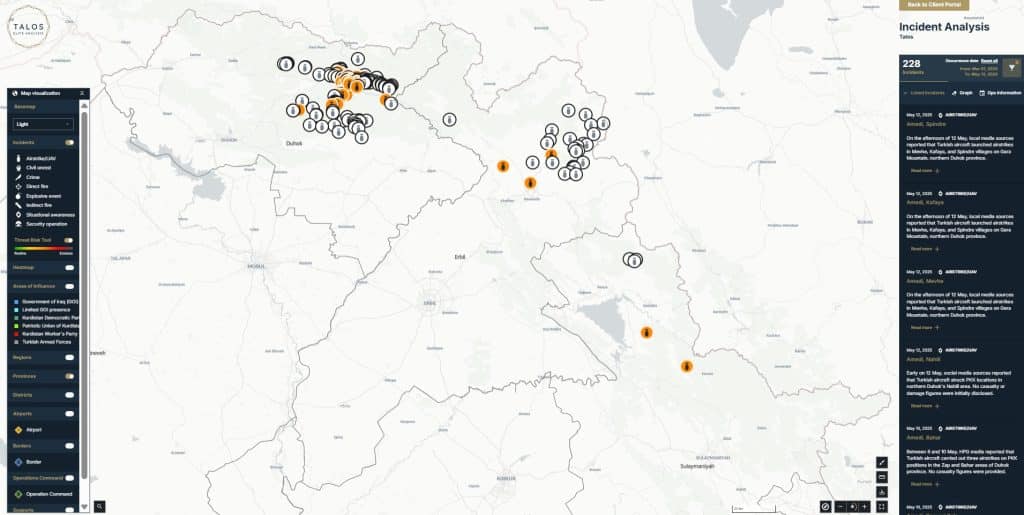
Map detailing Turkish military operations since 1 March 2025
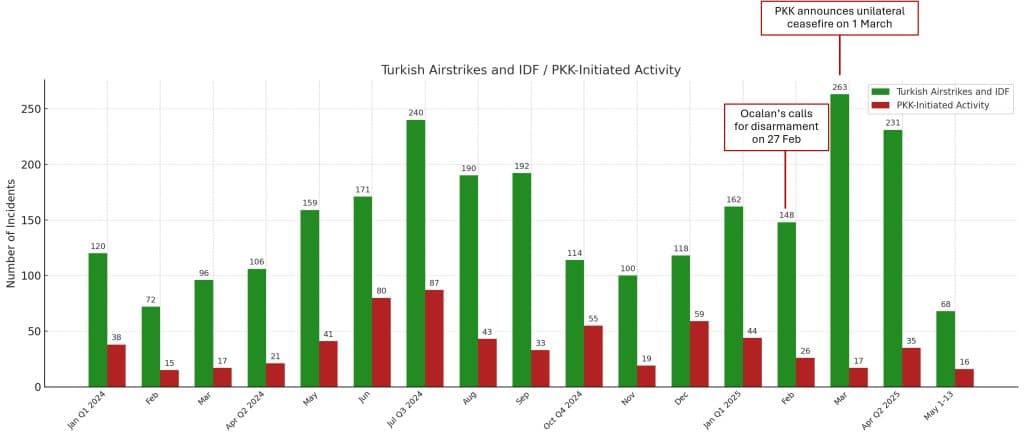
Overview of Turkey-PKK conflict activity. Note high levels of Turkish operations despite PKK ceasefire on 1 March
The outlook for continued conflict is also linked to the possible formation of PKK splinter factions, who may be at odds with the decision and continue the armed struggle. Historically, armed insurgencies are usually followed by low-intensity activities by splinter factions and the same may well happen when it comes to the PKK, especially in the event that the Turkish government refuses to grant expected concessions. The coming period will therefore likely be characterized by caution on both sides as the implementation of the dissolution and other activities by PKK-affiliates is monitored.
Regional and domestic considerations behind decision to dissolve
Regardless, the PKK’s dissolution stands out as a significant political victory for the Turkish government and understandably sets conditions for an end to the PKK insurgency. The developments underpinning the peace process are complex, but involve both domestic and regional considerations, which are assessed to have contributed to the 12 May announcement. ‘
First, the PKK’s long-term objective underwent a gradual change from initially demanding a separate, Kurdish state to instead focusing on greater autonomy and enhancing Kurdish rights within Turkey. At the same time, the group became gradually weaker as the Turkish government’s operation successfully pushed the PKK and its base of operations outside Turkey and into northern Iraq, where it lost both military capability and political leverage. Regional considerations are also assessed as a key factor influencing the PKK’s calculation: following the fall of the Assad regime in Syria, the Turkish government has greatly expanded and consolidated its control in Syria and, with the prospect of a US withdrawal from eastern Syria, the PKK has been left increasingly vulnerable in the northeast. In Iraq, Turkey’s relationship with Baghdad has greatly improved and Baghdad’s decision last year to ban the PKK underscored the GoI’s increasing willingness to cooperate with Turkey on the issue – thus leaving the group even more isolated.
In Turkey, support for operations against the PKK has been steady, but the domestic context and atmosphere have gradually changed in recent months as nationalist allies of the ruling coalition have struck a more cordial tone towards the Kurdish factions. The initiative by the nationalist Devlet Bahceli in October coincided with a symbolic and unprecedented handshake between Bahceli and MPs of the pro-Kurdish People Equality and Democracy Party.
One plausible speculation is that these moves, and the peace initiative, are a domestic political maneuver by Erdogan to obtain Kurdish support for efforts to amend the constitution in a way that would allow the president to remain in power beyond 2028. By furthering the peace initiative, the AK Party may seek parliamentary support from the pro-Kurdish People’s Equality and Democracy Party that would set conditions for the government to push through the constitutional changes. By ending the conflict with the PKK after more than four decades, President Erdogan would also score a major political victory that will greatly enhance his political standing, including amongst Kurdish minorities who have long considered the PKK as an impediment to furthering Kurdish rights.
End of conflict set to facilitate Turkish goals in Iraq and Syria, but risks remain
In Iraq and Syria, an end to the conflict would also facilitate Turkey’s pursuit of more tangible political and economic objectives. In Syria, this includes the integration of the Syrian Democratic Forces (SDF) under the formal structures of the interim government, which already commenced in March with an agreement between the two sides. In Iraq, the eventual removal of Turkish forces would further improve relations with Baghdad and facilitate the Development Road project, which aims to connect the Grand Faw port on the Gulf in southern Iraq to Türkiye by road, rail and, eventually, oil pipeline.
From a security standpoint, Turkey’s eventual withdrawal would not only improve security conditions in current conflict areas but also reduce the outlook for Turkish UAV strikes in areas outside established conflict zones and reduce the risk level in areas associated with PKK presence. It would also limit and reduce the outlook for Shia-militia-linked attacks against Turkish assets, which, despite a significant reduction in recent years, remains a standing consideration as long as Turkish forces remain present.
At this point, the government has yet to announce or communicate any plans for a withdrawal, and this remains speculative, but the end of the PKK will certainly remove any pretext for maintaining troops in Iraq. A failure to communicate withdrawal plans, or delays in executing such plans, may therefore contribute to an uptick in attacks against Turkish forces over the medium to long term. The future presence of Turkish forces and what steps the government takes in response to the PKK announcement will therefore be important to monitor.

